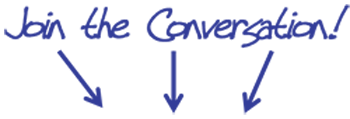 Guest post by Jay Baer, author of Youtility
Guest post by Jay Baer, author of Youtility
Today, companies must compete for attention against consumers’ friends and family members. Each day as people log on to Facebook, Twitter or Pinterest they see a variety of messages in their newsfeed or timeline, some of these messages are from their friends and family and some are from companies on social media. How can marketers compete in this environment successfully?
Friend of mine awareness and Youtility are the answer. Friend-of-mine awareness is predicated on the reality that companies are competing against real people for the attention of other real people. To succeed, your prospective customers must consider you a friend. And if, like their friends, you provide them real value, if you practice Youtility rather than simply offer a series of coupons and come-ons, they will reward your company with loyalty and advocacy, the same ways we reward our friends.
Youtility is marketing upside down. I call this Youtility, not “utility,” because a utility is a faceless commodity. Instead of marketing that’s needed by companies, Youtility is marketing that’s wanted by customers. Youtility is massively useful information, provided for free, that creates long term trust and kinship between your company and your customers.
As marketers, we’ve always tried to build loyalty with people, and now we must build loyalty with information. Social media marketing has changed the landscape of marketing by putting us in the mix with photos from our block party, our cousin’s baby and other companies trying to reach people as well. What you have is an intermingled mixture of information that matters to you because of personal relationships, and information that matters to you because of commercial relationships. It’s not just Facebook, either. Twitter works the same way, as do YouTube, Instagram, Pinterest, e-mail, blogs, and podcasts, too. For the first time, companies have to compete on the very same turf as our family and friends, using the very same tools and technologies and media and messaging as consumers.
My wife doesn’t buy radio ads to try and get my attention. My friends don’t buy newspaper ads to make sure I know what’s going on this weekend. But the opposite is most definitely true. Companies are now invading the spaces and mechanisms that we’re using to connect personally. The companies that will connect are the ones that are a Youtility in the social space, providing massively useful information that people want to see.
If your company and its marketing are truly, inherently useful, your customers and prospective customer will keep you close, as they keep their friends and family close. Making your company useful without expectation of an immediate return is in direct opposition to the long standing principles of successful marketing, and that’s a good thing.
Excerpted from Youtility: Why Smart Marketing is About Help not Hype by Jay Baer. See YoutilityBook.com for other resources.
 Jay Baer’s Bio: Jay Baer is a hype-free social media and content strategist & speaker, and author of the Amazon #1 bestseller, Youtility: Why Smart Marketing is About Help not Hype. Jay is the founder of http://convinceandconvert.com and host of the Social Pros podcast.
Jay Baer’s Bio: Jay Baer is a hype-free social media and content strategist & speaker, and author of the Amazon #1 bestseller, Youtility: Why Smart Marketing is About Help not Hype. Jay is the founder of http://convinceandconvert.com and host of the Social Pros podcast.
What do YOU think? Please use the COMMENTS area below to share your advice, insights and recommendations on these ideas and join the conversation...



 The new marketing is all about Ask and Give.
The new marketing is all about Ask and Give.  As a marketing speaker and marketing coach, I work with clients who are themselves gurus in their own fields - executives, entrepreneurs, speakers, authors, and consultants.
As a marketing speaker and marketing coach, I work with clients who are themselves gurus in their own fields - executives, entrepreneurs, speakers, authors, and consultants.  Want to Grow Your Business With Blogging? Here’s Your Quick-Start Guide
Want to Grow Your Business With Blogging? Here’s Your Quick-Start Guide Marketing used to be about “getting in front of” prospects, delivering your pitch, and making the sale.
Marketing used to be about “getting in front of” prospects, delivering your pitch, and making the sale.
 y do not use e‐zines because they simply do not have the time. As a marketing speaker and marketing coach to very busy CEOs, business owners, other professional speakers, and consultants, I hear you.
y do not use e‐zines because they simply do not have the time. As a marketing speaker and marketing coach to very busy CEOs, business owners, other professional speakers, and consultants, I hear you. 
